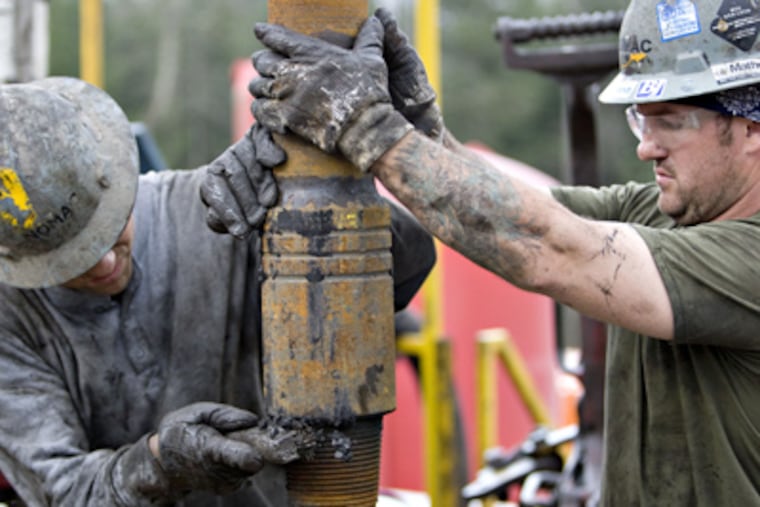Panel urges steps to reduce shale-drilling risks
A natural gas subcommittee appointed by U.S. Energy Secretary Steven Chu is recommending more public disclosure, more tracking of data, and other actions to reduce the environmental and safety risks of shale gas production in the nation.

A natural gas subcommittee appointed by U.S. Energy Secretary Steven Chu is recommending more public disclosure, more tracking of data, and other actions to reduce the environmental and safety risks of shale gas production in the nation.
In a report to be released Thursday, the committee calls for better ways to measure and limit air pollution, and recommends water-quality requirements.
It also wants to see the full disclosure of chemicals in fluids used for fracking, the process in which water and additives are injected underground at high pressure to break apart the geologic formation and release the gas.
Addressing a contentious issue - whether methane contaminating some wells is related to drilling or is from natural causes - it recommends determining background levels of methane in nearby water wells before drilling.
"Shale gas is a terrifically important resource for Pennsylvania, for the country," said Kathleen A. McGinty, former secretary of the Pennsylvania Department of Environmental Protection and one of the seven members of the subcommittee.
"If we're smart about it, and if recommendations like the ones we are making are seriously instituted, we can have the best of both worlds in producing this resource without damaging our resources or our environment," said McGinty, senior vice president of Weston Solutions, based in West Chester.
The industry also praised the report.
"Taken together, these fact-based recommendations represent yet another key step toward ensuring that commonsense policies must be in place to ensure that American natural gas development continues to be balanced with the proper environmental safeguards," said Kathryn Klaber, president of the Marcellus Shale Coalition in Canonsburg, Pa.
The subcommittee was convened by Chu at the direction of President Obama, and was given three months to identify immediate steps that could improve the safety and environmental performance of shale gas development.
Its chair is Massachusetts Institute of Technology chemist John Deutch, former head of the school's chemistry department and its former provost and dean of science.
Other subcommittee members include Fred Krupp, president of the nonprofit Environmental Defense Fund, and Daniel Yergin, chairman of IHS Cambridge Energy Research Associates and author of The Prize: The Epic Quest for Oil, Money and Power.
A spokesman for Gov. Corbett said the governor had not yet seen the report.
Corbett also appointed a group to look at state issues related to natural gas production in the Marcellus Shale. The commission released a 137-page state-specific report in July.
Its 96 recommendations include imposing a local impact fee on drillers, doubling fines for violations, and increasing the distance between drilling pads and streams, private water wells, and public water supplies.
The national subcommittee's report comes with no guarantee that any of it will be adopted. But, McGinty said, "what we hope and feel confident will be the case is that we've provided substance that will inform . . . and that industries themselves will pick up and institute as their own commitment to best practices."
The subcommittee noted that "production from shale formations has gone from a negligible amount just a few years ago to almost 30 percent of total U.S. natural gas production."
It said information needs to be made more accessible to the public, and it recommended a national database of all public information, which it estimated had been dispersed in 100 locations.
The report also calls for the creation of a shale gas industry group to improve "best practices" and drilling standards. It also called for government funding for research and development.
"We are mindful of the nation's financial constraints," Deutch said in a news release. "But we do see a key role that can be played by modest government support for R&D around environmental questions."